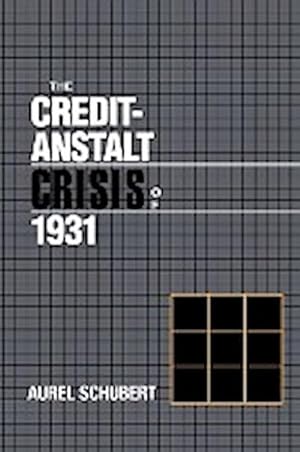9780521030298 - The Credit-Anstalt Crisis of 1931 (Studies in Macroeconomic History) von Schubert, Aurel (1 Ergebnisse)
Produktart
- Alle Produktarten
- Bücher (1)
- Magazine & Zeitschriften
- Comics
- Noten
- Kunst, Grafik & Poster
- Fotografien
- Karten
-
Manuskripte &
Papierantiquitäten
Zustand
- Alle
- Neu
- Antiquarisch/Gebraucht
Einband
- alle Einbände
- Hardcover
- Softcover
Weitere Eigenschaften
- Erstausgabe
- Signiert
- Schutzumschlag
- Angebotsfoto
Land des Verkäufers
Verkäuferbewertung
-
The Credit-Anstalt Crisis of 1931
Verlag: Cambridge University Press, 2006
ISBN 10: 0521030293ISBN 13: 9780521030298
Anbieter: AHA-BUCH GmbH, Einbeck, Deutschland
Buch
Taschenbuch. Zustand: Neu. Druck auf Anfrage Neuware - Printed after ordering - Austria played a prominent role in the worldwide events of 1931 as the largest bank in Central and Eastern Europe, the Viennese Credit-Anstalt, collapsed and led Europe into a financial panic that spread to other parts of the world. The events in Austria were pivotal to the economic developments of the 1930s, yet the literature about them is sparse. This book tries to fill this gap. Aurel Schubert analyzes the crisis using the leading theories of financial crises, identifies the causes of the crisis, examines the market's efficiency in predicting events, analyzes how the crisis was transmitted to the real sector, and studies the behavior of the Austrian as well as international authorities as lenders of last resort. His main conclusion is that even sixty years after the crisis, many of its lessons are still valid. Managerial and regulatory deficiencies led to the collapse of the bank; the subsequent currency crisis was not an irrational and unexplainable panic by a confused public, but rather a rational response to inconsistencies in policy; and the reactions of the largely unprepared authorities--in Austria as well as abroad--did not help in resolving the crisis quickly.


